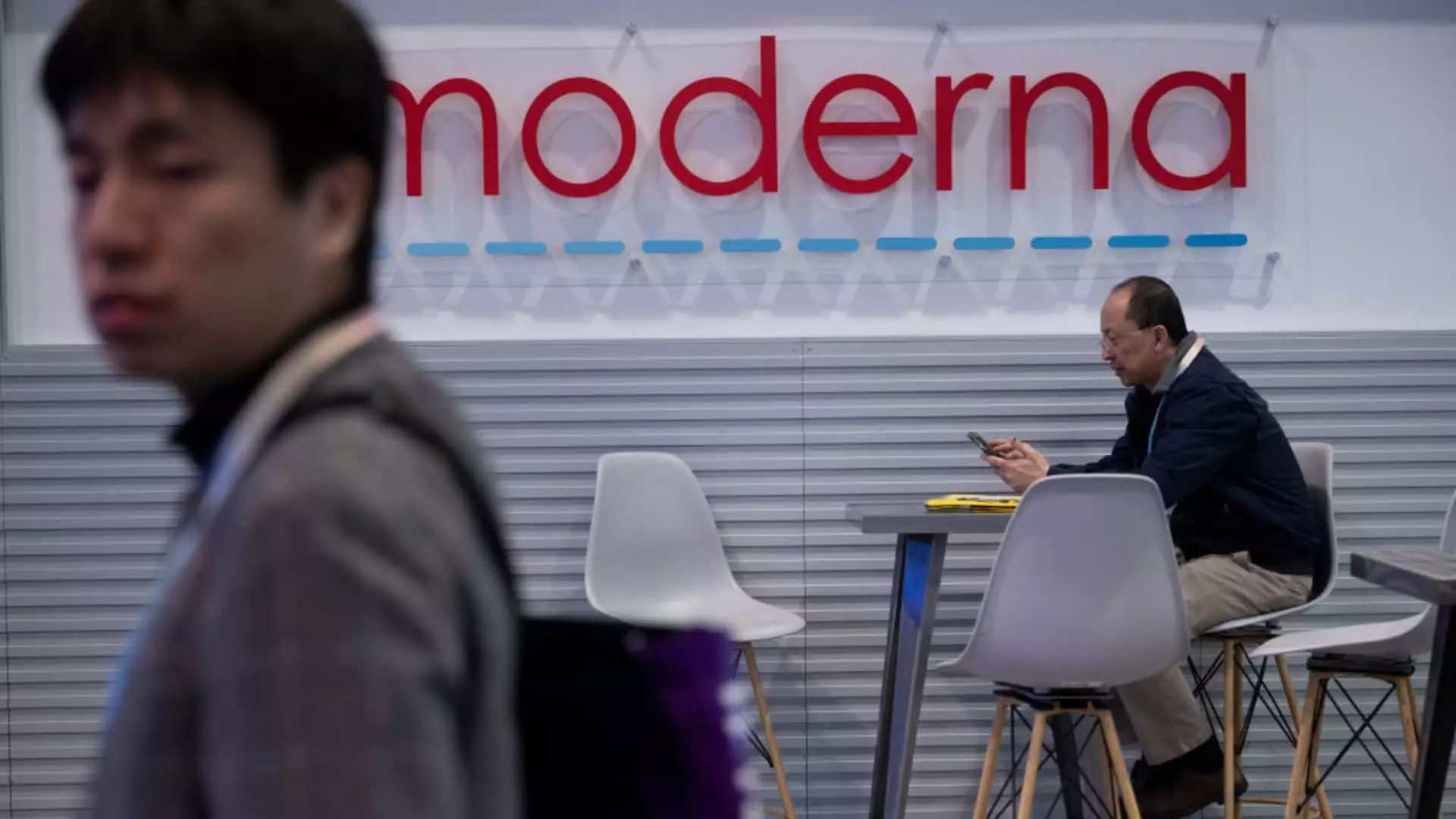Moderna, the biotech company known for its pioneering mRNA technology, published an updated sales forecast for 2025 this past Monday that raised eyebrows across the financial and healthcare sectors. The firm has slashed its sales guidance by nearly $1 billion, signaling a significant reassessment of its future performance in light of multiple emerging challenges. This reduction emphasizes the shifting landscape in the vaccine market and highlights Moderna’s continued efforts to stabilize its financial footing while expanding its product portfolio.
The new revenue expectations place Moderna’s 2025 turnover between $1.5 billion and $2.5 billion, a stark contrast to its earlier prediction of $2.5 billion to $3.5 billion made just a few months earlier. Analysts are particularly concerned because the majority of anticipated sales are expected to occur in the latter part of the year, primarily deriving from its COVID-19 vaccine and a recently launched vaccine for respiratory syncytial virus (RSV). Such a revision raises questions about the long-term sustainability of Moderna’s revenue streams, especially as the pandemic fatigue among consumers appears to be setting in, leading to reduced demand for booster vaccinations.
The downward adjustment is not merely a statistical anomaly. It reflects a broader trend enveloping the vaccine industry as competition escalates and public enthusiasm wanes. The market has become increasingly crowded and saturated, with multiple companies vying for a stake in the COVID vaccine arena, contributing to Moderna’s shrinking market share, which has plummeted from 48% in 2023 to 40% at the close of 2024.
Chief Financial Officer Jamey Mock articulates several key factors contributing to this sales decline. First, the intensified competition—particularly from companies like Novavax, which has formed a co-commercialization agreement with Sanofi—poses a direct threat to Moderna’s existing market position. The potential for increased competitive pressure could further drive down sales figures as consumers may turn to alternatives that promise similar efficacy or superior features.
Second, overall vaccination rates have dipped, with a reported 7% decline in the U.S. retail market documented during last fall compared to the same time the previous year. This trend is particularly alarming as it indicates a systemic change in consumer behavior—less willingness to engage in vaccination programs set against the backdrop of a receding pandemic and a growing sense of complacency in the general populace.
Timing and contractual vagaries with certain nations add another layer of complexity to the sales outlook. Uncertainties remain surrounding the recommendations from health agencies regarding RSV revaccination, leaving Moderna advocates and investors anxious about potential regulatory setbacks.
In response to these significant challenges, Moderna plans to execute a comprehensive cost-cutting strategy aimed at reducing cash expenses by $1 billion in 2025, with an additional $500 million targeted for 2026. These initiatives represent a tactical pivot aimed at streamlining operations and preserving capital in the face of recent revenue forecasts that leave much to be desired.
Despite these hurdles, Moderna remains optimistic about its future through aggressive diversification of its portfolio. The company is forecasting the approval of ten new product lines over the next three years, including a combination shot targeting both COVID-19 and influenza. This ambition indicates a deliberate move towards a more varied product base that could mitigate risks associated with single-product dependence.
As Moderna prepares for its presentation at the prestigious JPMorgan Healthcare Conference, the stakes are high. Executives aim to reassure investors and industry stakeholders about the company’s roadmap following the severe decline in demand for its COVID-19 vaccine. With revenue expectations for its current vaccines falling starkly from the previous year, it remains imperative for Moderna to regain momentum.
As they steer through these turbulent waters, Moderna’s commitment to innovation—centered around its mRNA platform—reflects a strong foundation for the future. While the current landscape is fraught with challenges, the successful execution of their strategic initiatives and new product launches could ultimately position Moderna to reclaim its status as an industry leader amid shifting tides in vaccine demand. The journey ahead may be complex, but if managed appropriately, it could yield fruitful results for the company’s future.

